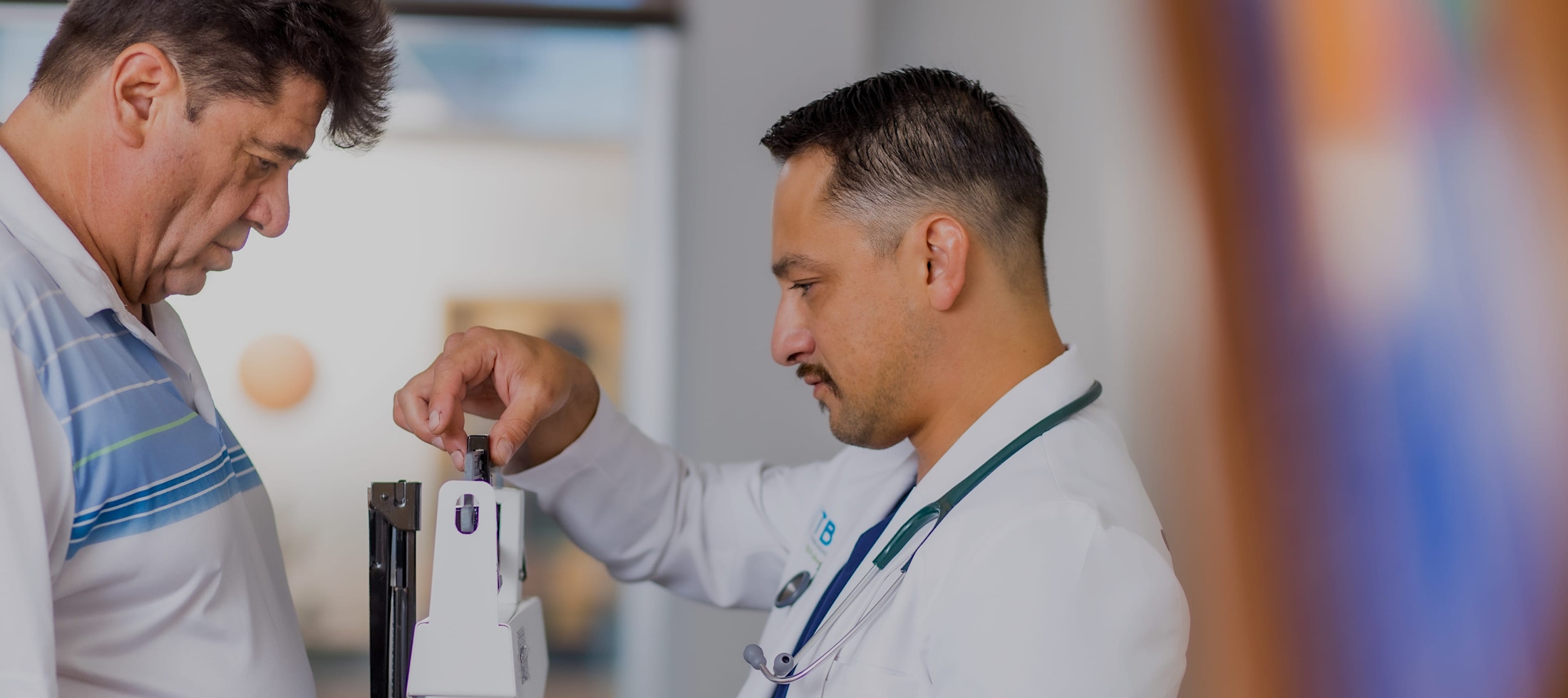Limited-Time Offer
All-Inclusive Gastric Sleeve Package
Starting at $3,750 USD
Available only for surgeries scheduled between June 23 – June 26

Available only for surgeries scheduled between June 23 – June 26
Undergoing bariatric surgery in Tijuana, Mexico, is an essential step in regaining control of your life. It's an exciting time for patients because of the incredible, life-changing results we are able to deliver.
Properly preparing for weight loss surgery is essential, as it sets the stage for a successful recovery and a life-long weight loss journey. We'll take you through the necessary mental preparation and items you'll need for a comfortable post-op recovery.
The initial consultation with our bariatric team will involve discussing your health history and candidacy requirements for our procedures. During your virtual appointment, we will discuss your weight loss options to determine whether a gastric sleeve, mini gastric bypass, gastric bypass surgery, or another procedure is most appropriate for you. We will also examine the relevant physical and emotional considerations before and after your surgery.
It’s important that you come to your appointment prepared on several different levels.
Have medical records from your primary care doctor and any lab or imaging tests forwarded to our office. You may also need to undergo tests to confirm that you are a candidate for a particular type of weight loss surgery.
Make sure you understand the pre-op diet program and the changes you will undergo as part of your post-op lifestyle. Although you may already know a lot about bariatric surgery, undoubtedly, more questions will arise as you get closer to the big day.
Opting for bariatric surgery for obesity entails significant lifestyle changes that necessitate the backing of friends and family. Discuss your decision with your loved ones before your initial consultation because achieving successful weight loss is nearly impossible without their support. Seek guidance from your doctor on how to approach family members who may be anxious or indifferent about your choice.
Following the initial consultation, we will gather medical records so our bariatric surgeons can conduct an in-depth health analysis and discuss other necessary information to determine your candidacy. At this time, you should notify our medical team of any allergies, health conditions, or general concerns about factors that may affect your outcome.



Besides making sure your body is healthy enough for the procedure, monitoring your emotional state is just as vital for a successful surgery and the weight loss to come. Follow these five tips to achieve a healthier weight.
Prior to your bariatric procedure, closely follow your pre-op diet to lose as much weight as possible. The pre-op diet will help make surgery safer while also helping you get used to healthy foods rich in protein and lower calorie intake. You can find additional information on specific pre-op diets for gastric sleeve surgery and gastric bypass surgery in our blog.
Do not use aspirin, blood thinners, or NSAIDs like ibuprofen, Aleve, or Motrin for one week before surgery, and stop taking Vitamin C and Vitamin E, as they all can cause excessive bleeding. Ask your doctor about what other medications you may need to discontinue temporarily.

In the months before surgery, it is essential to get into the habit of eating healthy foods. Since your stomach will not accommodate as much food after the procedure, you must be able to provide your body with the nutrients it needs while consuming smaller portions. During this time, bariatric surgery patients should strive to:
Adhering to a strict diet plan not only supports a successful surgery but also helps patients learn healthy eating habits to complement their postoperative lifestyles. During the seven to 14 days prior to the surgery, your doctor will prescribe a strict, liquid-only diet. Patients must adhere to the diet; otherwise, there is a strong possibility that the procedure will be canceled or rescheduled at a later date. Examples of various liquids that can be consumed during this time period include:
In some cases, you may consume a thin cream of wheat or cream of rice, but patients should consult with their doctor first. Caffeinated and carbonated drinks are strictly forbidden, and patients should wait at least 30 minutes between meals and the consumption of liquids.
At this point, you can also stock up on essentials like easy-to-prepare meals for other family members and do any chores that require bending, stretching, or heavy lifting, as you won't be able to do these for several weeks following your surgery. Place essential items in easy-to-reach places to aid your recovery. Full recovery from bariatric surgery can take up to six weeks, so make sure you have the proper assistance for childcare or other needs.
Prior to your procedure at our Tijuana, Mexico, surgical center, assemble some personal items to maintain your comfort. Think about bringing the following:
We encourage having a close friend or family member with you as much as possible during your hospital stay to provide support and to act as an advocate for anything you may need.

Following these guidelines on preparing for bariatric surgery will go a long way in helping you to have a more successful procedure and recovery experience. Our team will assist you every step of the way, including with your travel to Mexico and transfers from San Diego. We will answer any questions you may have and connect you with a bariatric surgeon within our network that will help you achieve the results you desire.
